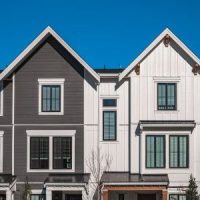Noise Complaints In Florida Condominiums

For many years, Florida courts have consistently recognized that in order to live in a condominium association, each owner must give up “a certain degree of freedom of choice” that they might have if they lived in a free-standing home. This is particularly evident when dealing with noise complaints – concerns like soundproofing can drive a wedge between owners, or between owners and their condo board.
Soundproofing May Be Necessary
The issue of how to deal with noise complaints in a condo association has been handled in several different ways. For example, many older condo associations required wall-to-wall carpeting in units, except in rooms where it would be inappropriate (such as a kitchen), with the intent of minimizing floor noise. Other boards have allowed modern flooring with some type of soundproofing underneath, subject to approval of the condo board.
Specifically, in most cases, Florida law requires ‘dwelling units’ to have an Impact Insulation Class (IIC) rating of at least 50. IIC is a benchmark intended to signify the level of noise that is audible in the unit – for example, at an IIC of 50, loud speech should be ‘faintly audible’ but not comprehensible, while an IIC of 75 should mean almost no outside noise can be heard. If your building does not have an IIC rating of at least 50, repairs may be necessary, which may place both a unit owner and a condo board in a difficult position.
Is It A Nuisance?
If you have been dealing with noisy neighbors, know that while the law is not on the side of a particularly sensitive person, it does require that a condo board investigate when a nuisance is occurring. Florida defines a nuisance as a person’s substantial, unreasonable interference with another person’s use or enjoyment of their own property. If this is occurring, the board is duty bound to investigate.
One important thing to keep in mind, if you are dealing with a noise complaint, is that your condo board has the duty to investigate – it does not have the duty to police a dispute between neighbors. It has long been held in both statutory and case law that a condo board should not become involved in disputes of “personality” – but if a potential nuisance does exist, and it is affecting multiple parties, the board must step in.
Contact A Tampa Condominium Association Attorney
Disputes between owners are common, particularly over noise-related issues. While not every noise complaint may be a nuisance, it is important that the matter be definitively settled with the right legal help. A Tampa condominium association attorney from the Seward Law Office can assist – contact our office today to schedule a consultation.
Source:
casemine.com/judgement/us/59149601add7b049345d9727
